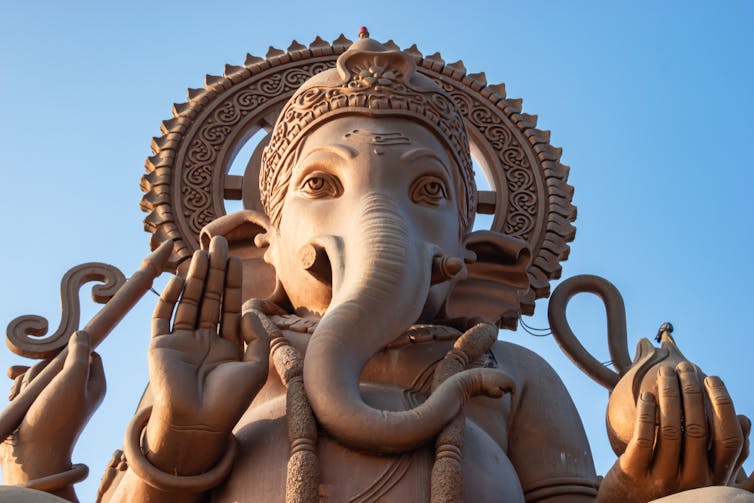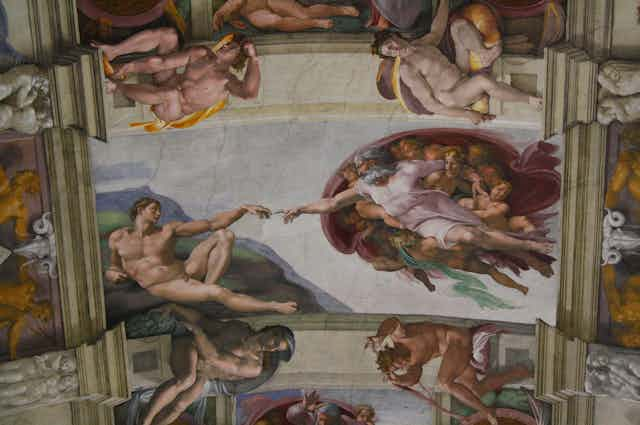My four year-old nephew and two year-old niece believe passionately in Santa Claus. In many ways they are like any religious people – they suspend the evidence of their eyes and ears for faith in a character they have never actually seen, but who they believe has special powers, based on stories they have been told that have been passed down through many generations. So, is a belief in Santa Claus a religion?
The question of what makes a religion is very topical. An employment tribunal is in the process of ruling on whether or not ethical veganism is a protected “philosophical belief” in the same way as a religion. Under the Equality Act of 2010, “philosophical beliefs” are “protected characteristics” – as a result, individuals cannot be lawfully discriminated against on the grounds of holding protected philosophical or religious beliefs.
Given the five criteria on which the Equality Act affords protection to philosophical beliefs, ethical veganism – or the view that it is morally wrong to produce, use, or benefit from animal-based products – certainly stands to qualify:
- The belief is genuinely held.
- It is not merely an opinion or viewpoint based on the present state of information available.
- It is a belief as to a weighty and substantial aspect of human life and behaviour.
- It attains a certain level of cogency, seriousness, cohesion and importance.
- It is worthy of respect in a democratic society, and compatible with human dignity and the fundamental rights of others.
The question for the tribunal is whether ethical veganism is a belief – in other words, whether it is a subjective commitment to the truth grounded in facts, evidence, or faith, or whether it is merely an opinion or preference. As part of this discussion, the tribunal will need to consider what exactly is the distinction between the two.
Read more: Should veganism receive the same legal protection as a religion?
What is a religious belief?
These are no doubt difficult philosophical questions. But the case gives rise to a broader question: what makes a belief a religious belief, as opposed to a philosophical belief – such as Jeremy Bentham’s utilitarian ideals that we ought to legislate in such a way as to maximise well-being, or just any old belief – such as the view it will rain tomorrow. Certainly, the Equality Act of 2010 is unclear on the matter saying only:
- Religion means any religion and a reference to religion includes a reference to a lack of religion.
- Belief means any religious or philosophical belief and a reference to belief includes a reference to a lack of belief.
This lack of clarity may not matter. A lot of legislation is deliberately left unclear on the basis that it employs terms with which the courts are already familiar, or on the basis that courts are better placed to develop definitions.

Analytic philosophers use the term “belief” to refer to the attitude or mental state we have when we regard something to be true. So, ethical veganism is a philosophical belief to the extent that it is grounded in the acceptance of the truth of a certain practical principle – namely, the belief that the proposition that it is morally wrong to produce, use, or benefit from animal-based products is true. A large number of compelling arguments can be given to support this principle – for example that the use of animal products damages the environment.
On the other hand, a large number of compelling arguments can be given against this principle – we can also show that humans benefit immensely from the availability of animal products.
But, ethical issues aside, veganism is clearly different to the beliefs of those committed to, say, Judaism, Christianity, Islam, Hinduism or Buddhism. So what is it that makes a belief religious – and at what point does a belief become a religious belief?
Pantheon of gods
A first attempt to answer this would be to maintain that the logical foundations of religious belief have something to do with God – where “God” is understood as an all-powerful deity who created the universe and everything in it. But if belief in some kind of all-powerful deity – or deities – is the essence of religious belief, then this would exclude Buddhism. Buddhism denies the existence of a creator god, as well as the existence of an eternally persisting soul – although traditional forms of Buddhism do recognise the existence of supernatural beings such as gods and ghosts.

A second attempt to answer this would be to maintain that religious belief is fundamentally different from non-religious belief in its commitment to the supernatural. But this is too broad, for it would allow a belief in any kind of supernatural entity to constitute a religious belief, which brings us back to my nephew and niece’s belief in Father Christmas.
Moreover, Scientology claims to be a “religion in the most traditional sense of the term”, helping man “become aware of his own spiritual nature and that of those around him and hence more aware of God”. Yet, Scientology’s recognition as a religion – and tax exempt status – remains controversial.
A more promising route seeks to define a religion first, and then determines whether a belief held by an adherent of the religion is religious or not. Following Ninian Smart (1927-2001), a pioneering Scottish academic in the study of comparative religion, we can analyse the phenomenon of religion via following seven dimensions.
Firstly, religions involve rites and ceremonies. Secondly, religions are experiential and emotional in the sense that the religion is a lived experience. Thirdly, there is narrative and mythic dimension to religion, which allows for various levels of interpretation regarding scripture and revelation. Fourthly, there is a doctrinal and philosophical element to religion – a systematic formulation of teachings relating to a fifth ethical and legal dimension, concerned with the fundamental principles of right and wrong. Finally, there are a sixth dimension encompassing social institutions and a seventh dimension which includes all the objects through which the spirit of the religion becomes embodied – Christianity’s crucifix, for example.
From here we can see that what makes one’s belief a religious belief is an extremely complex matter – but one thing does remain certain: for all its perceived virtues or faults, veganism cannot be said to be a religion, despite the fervour of its followers.

